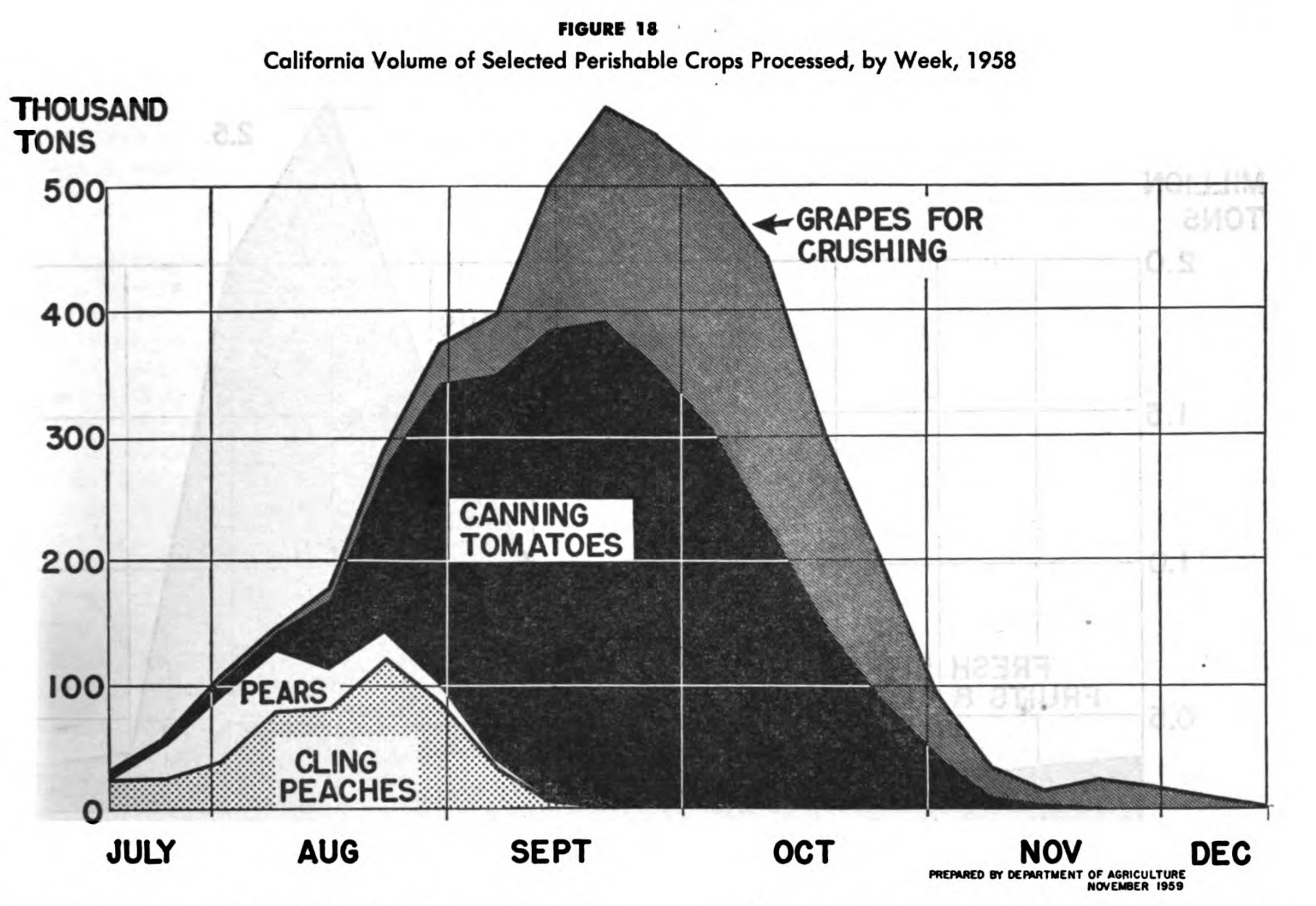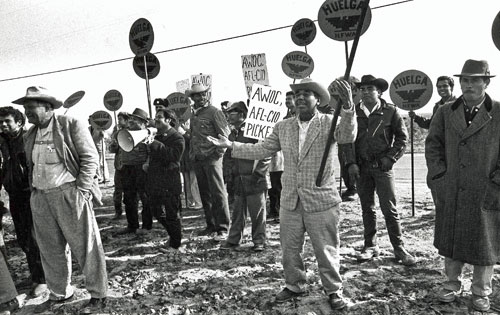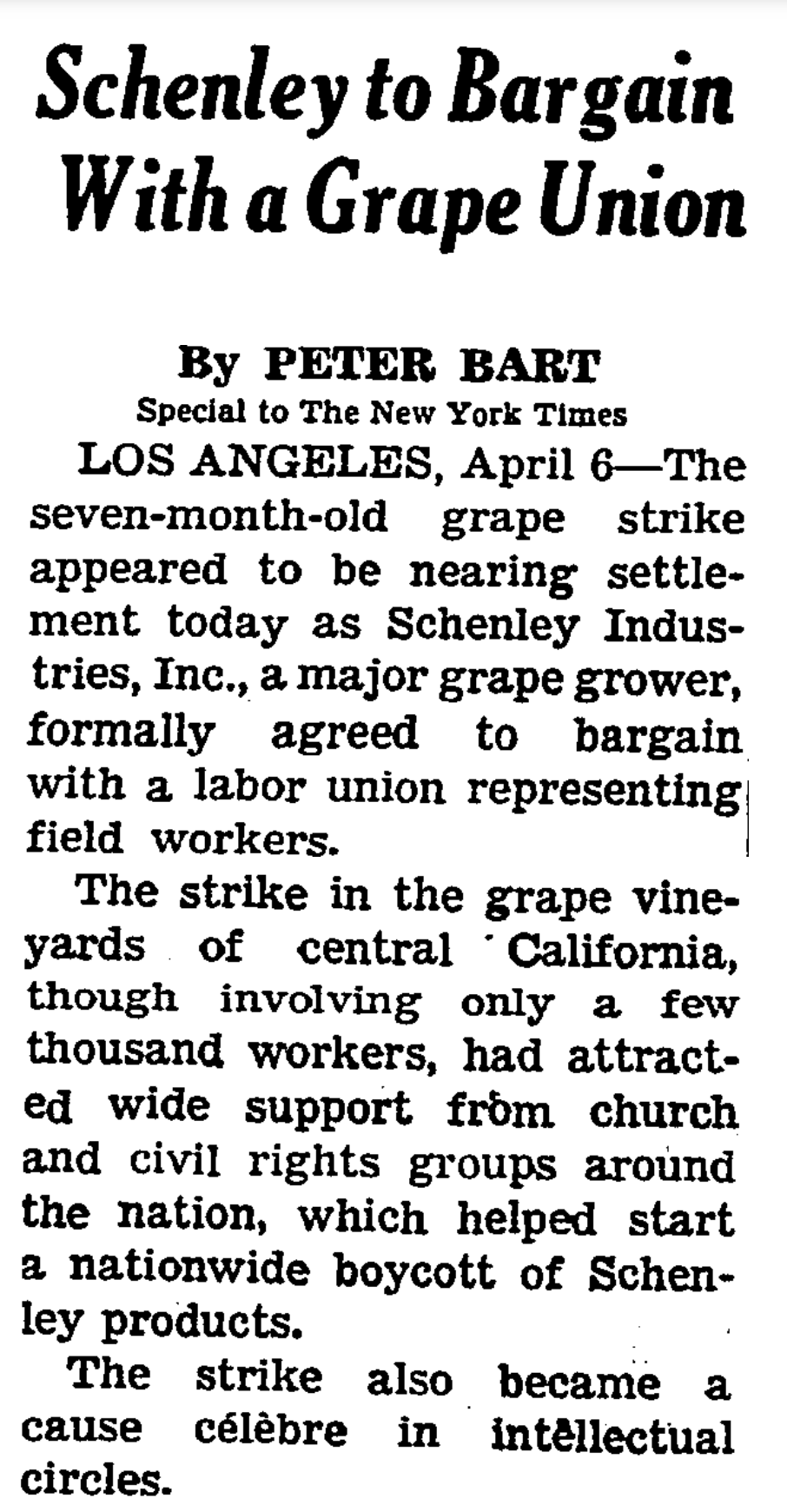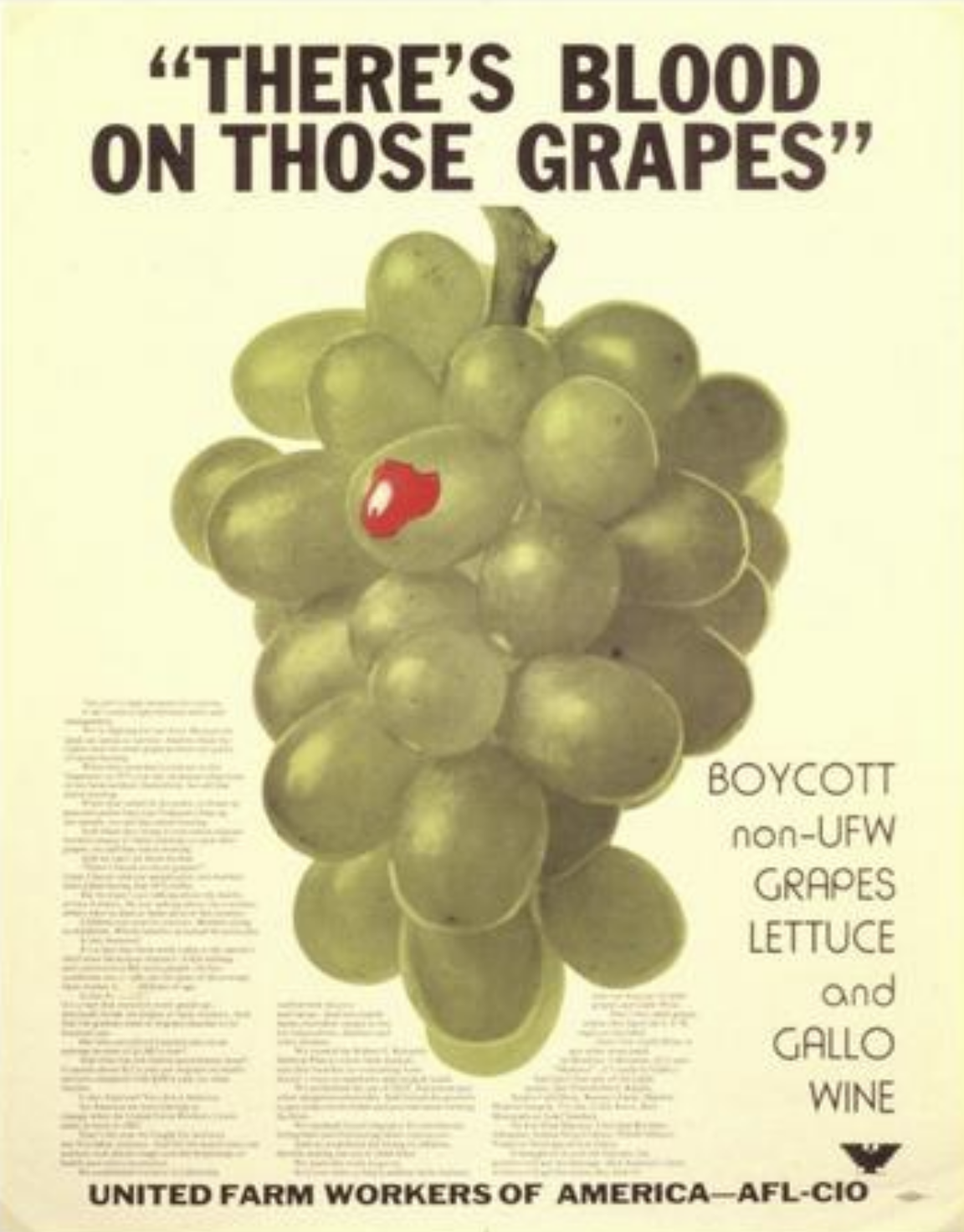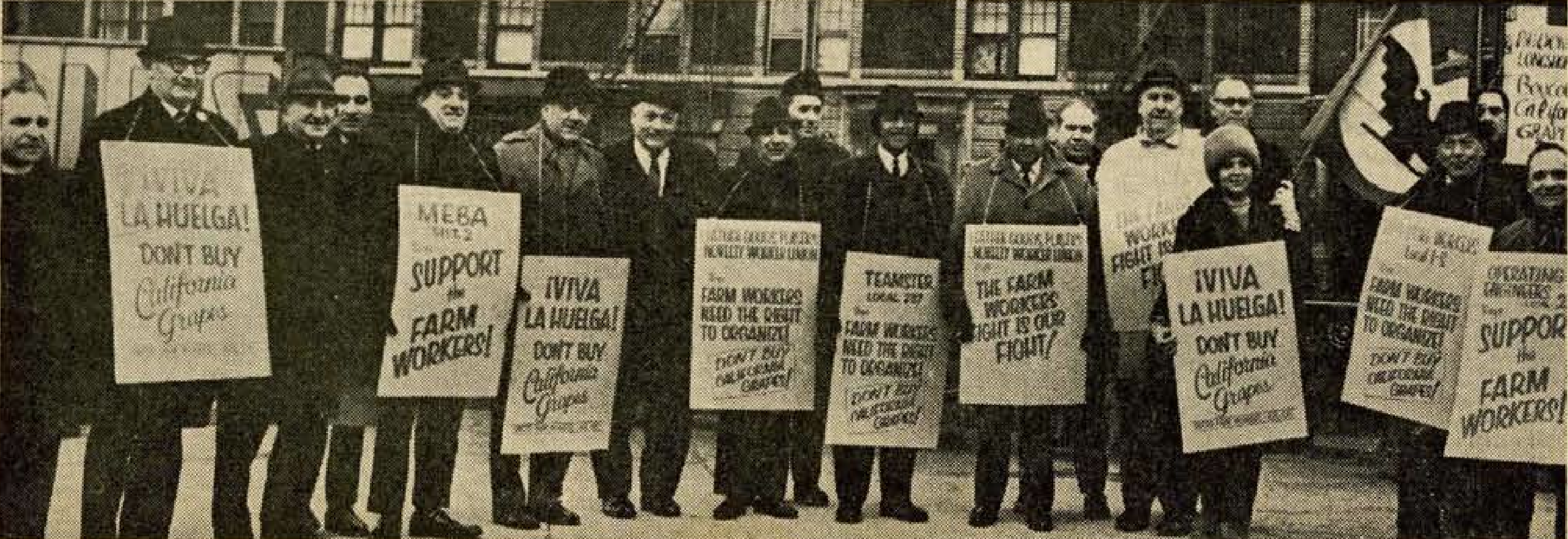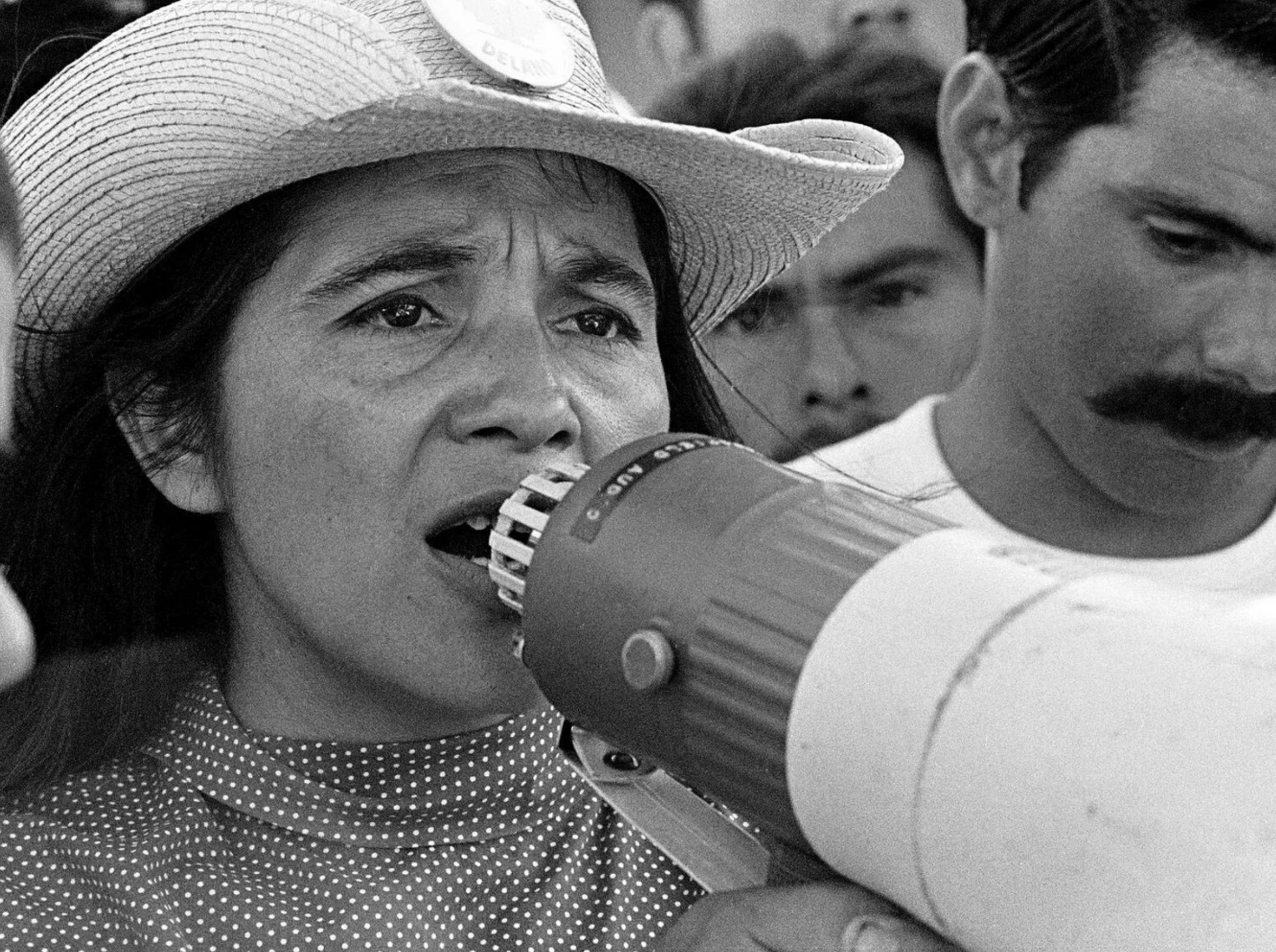Delano Grape Strike
The NFWA had planned to begin striking within five years of its founding but found itself on the picket line much earlier than that when the Agricultural Workers Organizing Committee (AWOC) began striking in Delano in the fall of 1965.
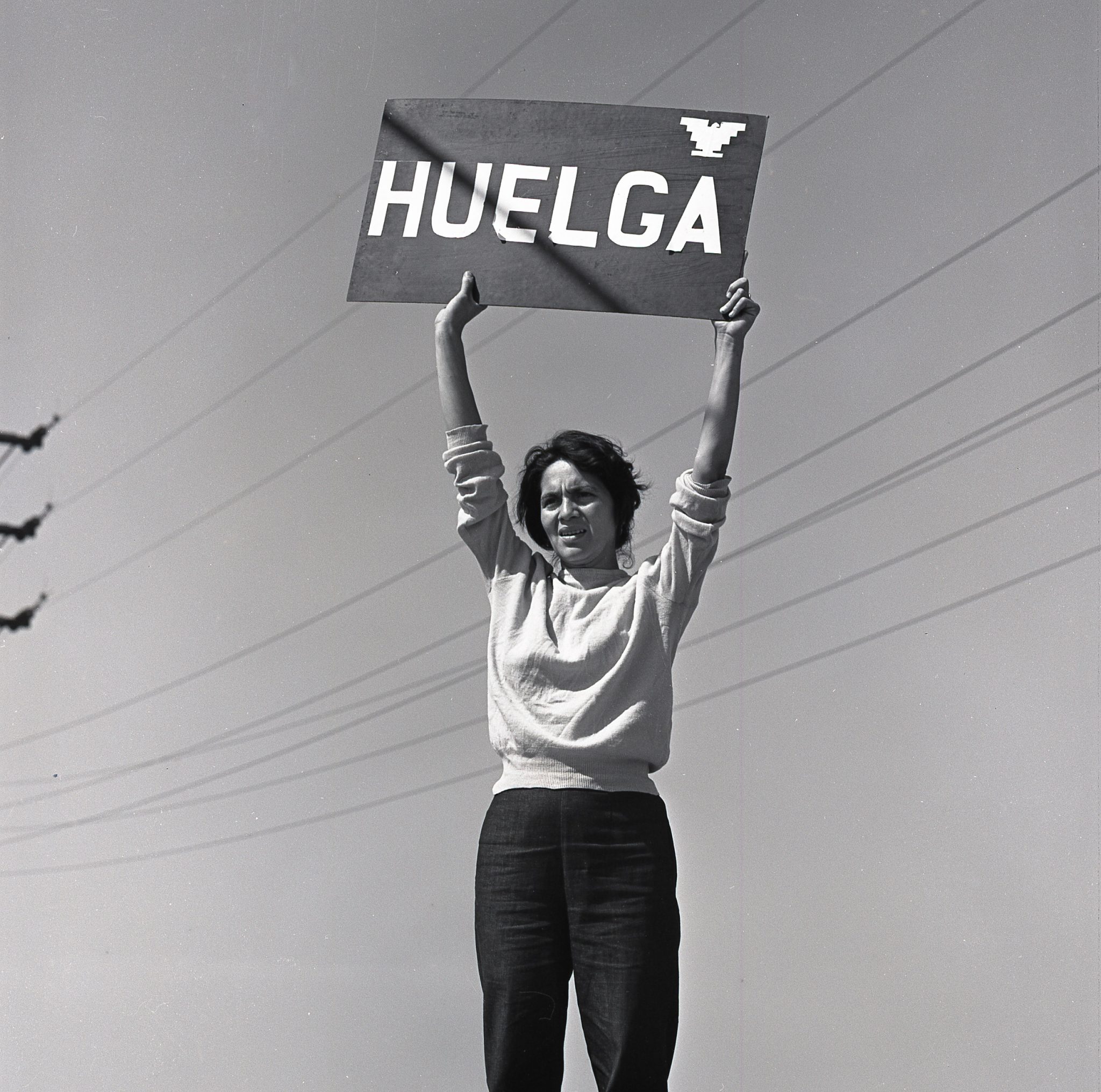
Huerta on a grape strike. (Harvey Richards, 1965)
